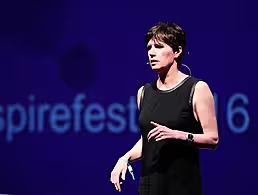Have a job interview coming up? Feeling a little rusty? Hays’ Dean Stallard is here to guide you through it, no matter how long it has been.
Have you finally taken the plunge and decided that after 10, 15 or maybe even 20 years that it’s time to move on from your current company and interview for new jobs?
If so, then, understandably, you will have your doubts. After all, over the years, you’ve made some great connections and even friends at your current company.
You’ve been able to progress your career within this environment and really make your mark. But now, you know that it’s time to close that chapter and get back into the interview game after a long time. The prospect of this is enough to make anyone anxious.
Your potential new employer may also have their reservations. Yes, your years of experience, expertise and loyalty to your last company can certainly work in your favour. However, due to your long tenure, the interviewer could have concerns surrounding your adaptability to new environments, or how open-minded you are to different ways of doing things.
The good news is that there are a few simple ways you can help dispel any doubts both you and the interviewer may have, and experience a successful interview.
Overcome your own doubts
How can you sell yourself confidently to your interviewer if you still have your own self-doubts? Yes, it’s been a while since you last had an interview, and no doubt you will feel a bit out of practice. However, if you prepare adequately beforehand, you will put yourself in the best possible position.
So, before the interview, rehearse answering some interview questions out loud, in front of the mirror or other people, and get used to talking yourself up again.
As you do this, try to communicate confidence, for example, by smiling, sitting up straight and making eye contact as you speak. Acting confident can soon turn into feeling confident. Once you do this, you are ready to overcome some of the interviewer’s reservations.
Focus on your achievements
The main thing the interviewer will want to know is that you spent your time within your previous organisation wisely, rather than resting on your laurels for the best part of a decade.
How did you progress your career within this company? Break down all of your achievements and talk about the positive impact these had. You should also mention any promotions or increments in your responsibilities.
This will show that your years within the same company don’t reflect a lack of ambition. On the contrary, you got everything you could from this employer in terms of career progression, and now it’s time for you to move on.
Position yourself as an expert in your field
Hopefully, doing the above will demonstrate your expertise in your field, but you should still take extra steps to emphasise how you have become extremely well-versed and knowledgeable throughout your previous role.
As well as highlighting any qualifications or accolades, talk about why you are passionate about what you do, and be specific. You should also mention how you keep your skills up to date, whether it’s through training courses, reading industry publications or signing up to webinars.
Either way, demonstrate to your interviewer that you already have a wealth of knowledge, but that you also keep your finger on the pulse in order to maintain your expert status.
Show you can build new relationships
Your interviewer may also be concerned that, having worked alongside the same people for so long, you could take some time to build relationships within an unfamiliar environment.
No doubt there have been occasions where you needed to work with new people over your years at this organisation. Perhaps you were asked to train the latest team members, lead meetings with new clients, or go to networking events to represent the business. Either way, you are no stranger to building relationships, and your interviewer needs to know this.
Have these examples ready in your mind, and be prepared to include them when relevant during the interview. Illustrate how you developed a rapport with the other person over a short space of time, whether this was through using your listening skills, asking the right questions or finding some common interests.
Demonstrate your open-mindedness
Another reservation that your interviewer may have is that the practices and processes of your previous company have become embedded, and it will take you a while to adjust to new ways of working.
You can counter this potential doubt by talking about the ways in which you have showcased your innovative and curious mindset during your time within your previous role. This may include times where you have adjusted well to a change within the business, taken it upon yourself to learn something new or suggested a new idea that was implemented.
You should also ask plenty of questions at the end of the interview to show that you are interested in this company and would like to learn more about the different ways in which it works.
Emphasise that you need a change
As I mentioned before, whilst your loyalty to your previous employer will reflect well on you, your years of service could also get misconstrued as being afraid of the unknown. The way to counter this is to be emphatic about how much you want this change, hence why you are here.
Don’t speak negatively about your previous employer. Instead, talk specifically about what it is that appeals to you about this opportunity, be it the industry, company size or even job role. Either way, when asked, ‘Why are you looking to leave your current role?’, focus in on the positive changes that you are most enthusiastic about.
Ultimately, your years spent at your previous organisation will work in your favour, but only if you play your cards right. The trick is to get back into practice, quash any reservations that the interviewer has in relation to your ambition and adaptability, and gear your answers around proving your expertise, interpersonal skills and enthusiasm for this new and exciting opportunity.
Dean Stallard is the managing director of Hays in Hong Kong and has 11 years’ experience in recruitment.
A version of this article originally appeared on Hays’ Viewpoint blog.




